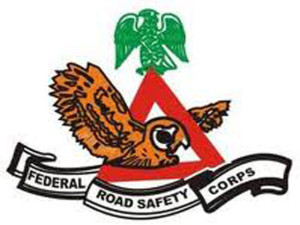
The Federal Road Safety Commission (FRSC) has denied recent reports that a federal high court voided its power to impose fines, issue tickets and impound vehicles in the country.
The road safety agency said ‘mischief makers’ only circulated an old judgement that has long been vacated by an appellate court.
A few days ago, there were reports in some newspapers that a federal judge had voided FRSC’s power to punish offenders and impound vehicles.
But in an audio statement sent to PREMIUM TIMES, Bisi Kazeem, the Commission’s head of media relations and strategy said appellate courts had since affirmed FRSC’s authority to impose fines, issue tickets and impound vehicles in the country.
Mr. Kazeem admitted that a federal high court judge in Lagos, John Tsoho, once ruled that FRSC had no power to impose levies on Nigerians, but added that the judgement was in 2014 and was currently on appeal.
“The truth is that there is no recent judgment of the FHC Lagos on the Tope Alabi case as being circulated,” Mr. Kazeem said. “What happened was that one Barrister Tope Alabi challenged the powers of the FRSC to arrest him and impound his vehicle and make him pay fines for offences alleged. The FHC presided over by Justice Tsoho held that FRSC had no such powers. This was in September 2014.”
Mr. Kazeem further stated that there had been other cases in which the courts upheld his Commission’s power to impose fines.
“However, in four different cases filed by Mr. Alabi in 2014, same Justice Tsoho, in the case of Bren Williams & Anor v FRSC, held that FRSC had statutory powers to issue notice of offence, arrest, and detain vehicles suspected to have been used to commit traffic offences.’’
Mr. Kazeem said on the same day, Justice Tsoho delivered another judgment similar to Mr. Alabi’s case in Emmanuel Ofoegbu v FRSC.
Mr. Kazeem said Justice Tsoho held that it was beyond FRSC’s power to set deadlines for motorists to change over to new number plates.
Mr. Kazeem said that judgment merely nullified the commission’s power to arrest motorists for not using the new number plates under the National Road Traffic Regulations, 2012, a subsidiary legislation to the FRSC Act, 2007.
Mr. Kazeem said the FRSC successfully challenged the decision at the Court of Appeal in Lagos in October 2014.
Mr. Kazeem said the appellate court, in its June 2015, judgement held, inter alia:
“That FRSC had statutory powers conferred by its enabling laws made pursuant to the Nigerian Constitution to regulate the use of number plates, design and set deadlines for change over to new ones.”
Mr. Kazeem said the September 2014 judgment of Justice Tsoho which is also being challenged on appeal is the one currently being circulated on social media by those he called mischief makers.
“For the avoidance of doubt, there are reported Court of Appeal decisions to the effect that FRSC has powers to arrest, issue notice of offence to suspected violators and impound vehicles used to commit traffic offences and electing to pay the prescribed fines instead of challenging the notice of offence in court does not amount to usurpation of court powers,” Mr. Kazeem said.
“It is the voluntary decision of whoever decides to pay fines instead of challenging the notice of offence in court.”
Mr. Kazeem said the Court of Appeal’s decisions had overtaken whatever was decided in the Tope Alabi’s case, which is also being challenged at the Court of Appeal.
END

Be the first to comment